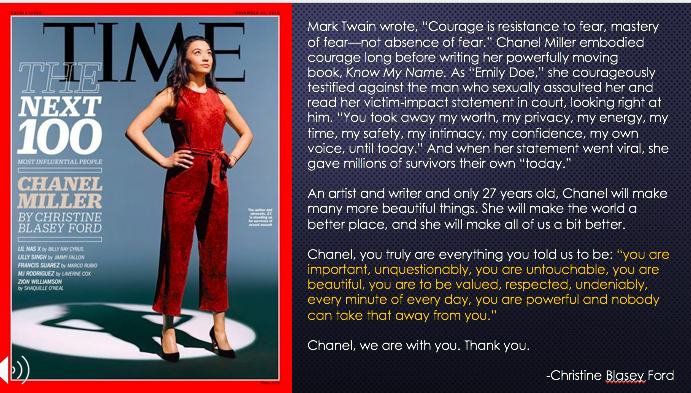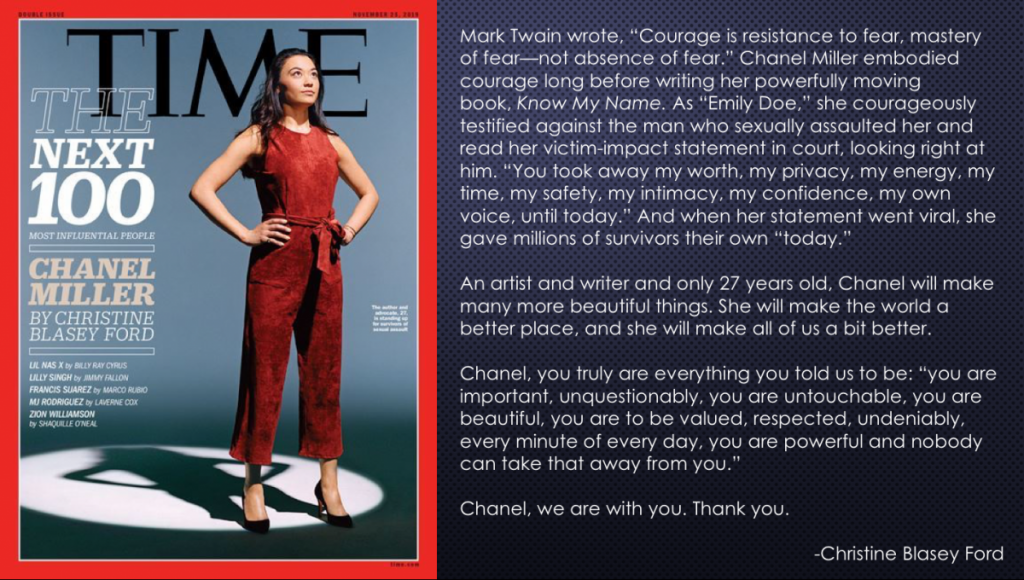In their rather challenging article, “‘Our Bodies Are Not Terra Nullius’: Building a Decolonial Feminist Resistance to Gendered Violence,” Ashley Noel Mack and Tiara R. Na’puti assert that “a commitment to decolonization is necessary when addressing gendered violence within settler colonial nation-states” (18). They further argue that settler colonialism is not a bygone structure of power but one that continues “to enact violence against Native women and Two-Spirit individuals with impunity” in the present day (4). Moreover, because the U.S. government has repeatedly violated the trust of Native communities, “self-determination and community-led coalitions are key components of Indigenous organizing around sexual violence” (5). According to Mack and Na’puti, how do Indigenous organizations such as Murdered and Missing Indigenous Women (MMIW) and Violence on the Land, Violence on Our Bodies (VLVB) promote healing and justice for murdered and missing indigenous women, LGBTQQIA+, and non-binary people?
Author: Holly Allen
Week 8 Day 1 Question 1
Our readings for today address what Andrea Smith terms “sexual violence as a tool of genocide” in the United States. Consider the following PBS NewsHour report (5:46 minutes) featuring an interview with Abigail Echo-Hawk, Director of the Urban Indian Health Institute. According to Echo-Hawk, what factors contribute to the high incidence of missing and murdered indigenous women and girls in the United States? How have centuries of settler colonialism contributed to the plight of missing and murdered indigenous women and girls, to the detriment of their families and communities?
Week 2 Day 1 – Question about black female spectatorship
In “The Oppositional Gaze: Black Female Spectatorship,” bell hooks recalls her experience of watching Imitation of Life when she was a teenager. Regarding the character of Sara Jane, hooks writes:
There was something scary in this image of young sexual sensual black beauty betrayed—that daughter who did not want to be confined by blackness, that “tragic mulatto” who did not want to be negated . . . I will always remember that image. I remembered how we cried for her, for our unrealized desiring selves. She was tragic because there was no place in the cinema for her, no loving pictures. She too was absent image. It was better then, that we were absent, for when we were there it was humiliating, strange, sad. We cried all night for you, for the cinema that had no place for you. And like you, we stopped thinking it would one day be different. (121-122)
While hooks’ essay is only tangentially about Imitation of Life, how does her discussion of black female spectatorship help us to better understand the film and the plight of Sara Jane’s character within it?
Week 12 Day 2 Discussion Question 5
Brock Turner’s crime took place on the Stanford University campus, where administrators were already under scrutiny for their handling of campus sexual assault. As Emily Bazelon wrote in 2014:
From 2005 to 2011, nine students were found responsible for sexual assault. One student was expelled, for violations involving multiple victims. The other eight received suspensions ranging from one quarter to eight quarters. The average sanction for sexual assault at Stanford is a four-quarter suspension. (Stanford confirmed those numbers.) And it’s definitely not just Stanford: In a yearlong investigation published in 2010, the Center for Public Integrity found that across the country, “students found ‘responsible’ for sexual assaults on campus often face little or no punishment from school judicial systems, while their victims’ lives are frequently turned upside down.”
Emily Bazelon, “Suspension Isn’t Enough,” Slate, June 2014.
How has reading about Chanel Miller’s story resonated for you as a student on the Middlebury College campus? What work does Middlebury have to do to better combat sexual assault and support survivors?
Week 12 Day 2 — Pick a passage.
Please use this space to share and comment on a passage from any of today’s readings that particularly moved you.
Week 12 Day 2 Discussion Question 4
Chanel Miller is a visual artist as well as a writer. Discuss the short film she made with Emily Moore. How does the film, as an audio-visual medium, enhance the message Miller communicates in her Victim Impact Statement and in her memoir?
Week 12 Day 2 Discussion Question 3
Chanel Miller’s story is part of a broader feminist narrative about rape culture and the power of survivors’ voices. Her story follows countless others that emerged in the context of #MeToo, and her courage recalls that of Christine Blasey Ford, who testified during Supreme Court confirmation hearings about the assault she endured by Brett Kavanaugh. Ford paid tribute to Miller when the latter was honored as one of Time Magazine’s “The Next 100” in 2019, as the image and text below suggest. Read hristine Blasey Ford’s tribute and discuss below.


Week 12 Day 2 Discussion Question 1
What do you remember about the Brock Turner rape case as it unfolded in the news? Did you follow it at all? How is Chanel Miller’s story different from the media reports in 2016?
Week 12 Day 2 Discussion Question 1
One of the arguments against punishing Brock beyond six months in jail is that serving a prison sentence would ruin his life. And yet, as Chanel asks in this book, what about my life? Hers is not the only life affected, though. Discuss how this experience affected Chanel and her loved ones.
Week 9 Day 1 – post a question
Since we are now communicating remotely, is there a question or an issue that you might have raised in class if you had that opportunity? If so, please feel free to post it here.
